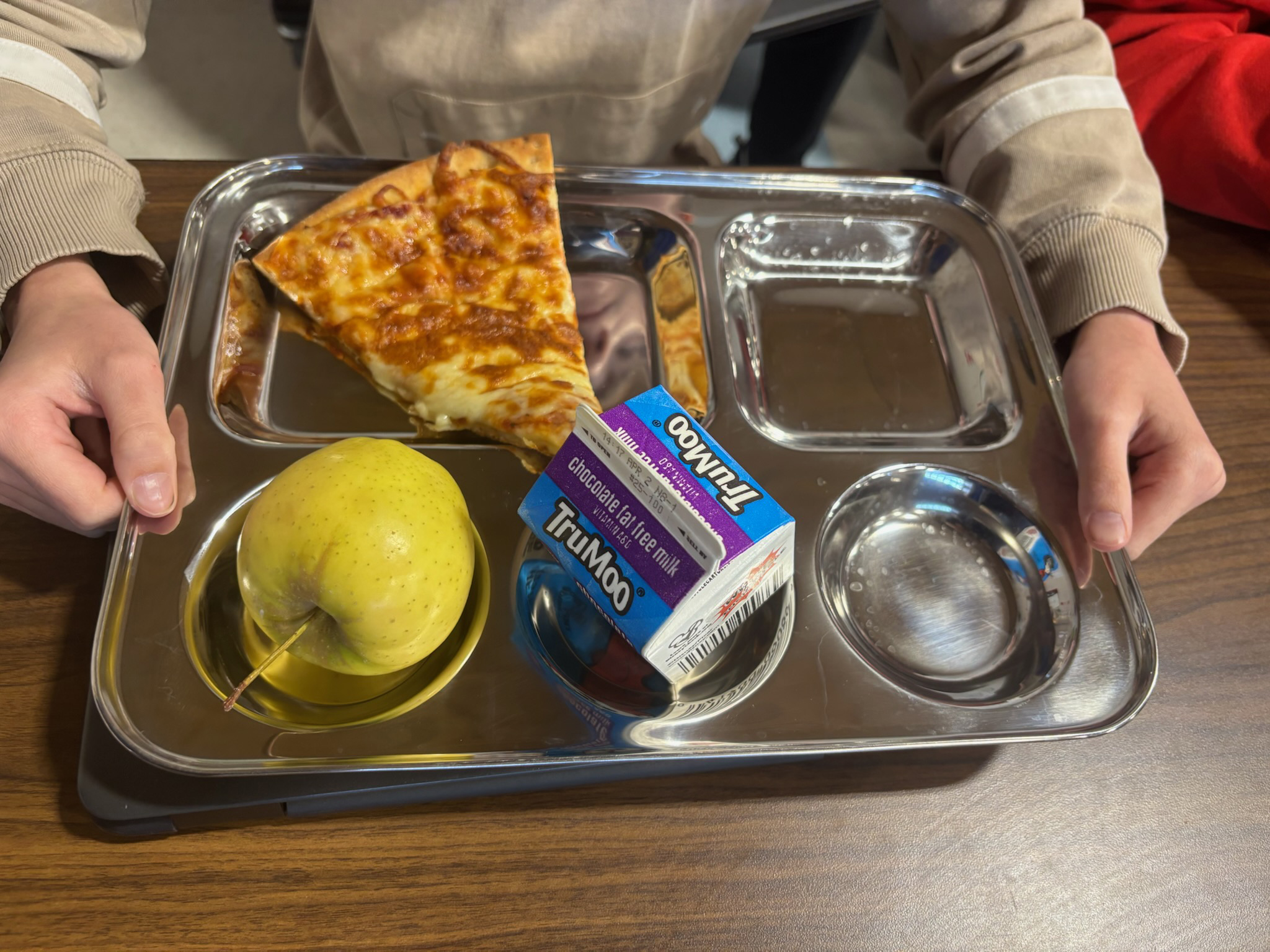
Schools Switching to Reusable Trays with Support from Clean Water Action and Plastic Free Restaurants
GEORGETOWN, MA: Georgetown Public Schools are joining a movement of New England schools to replace disposable dining ware with reusables to fight waste in their cafeterias. The district partnered with Clean Water Action’s ReThink Disposable program to transition from disposable polystyrene meal trays to Ahimsa GreenScreen Certified stainless-steel trays which were donated to the school with the support of a subsidy from Plastic Free Restaurants. The district will run a pilot phase of the trays for the last two weeks of the school year and then be ready for a full launch of healthy, sustainable lunches in the fall.
“Switching to stainless steel trays is a meaningful change for our schools. It helps reduce waste and shows our students that even small everyday choices can make a difference. We’re excited to make this change and show that taking care of the environment can begin right here in our lunchrooms,” said Kristine McCoy, Food Service Administrative Coordinator at Georgetown Public Schools.
“Polystyrene trays are common in Massachusetts schools, but they pose serious dangers to our environment and public health. It is great to work with the administrators and faculty of Georgetown Public Schools who are passionate about the health of students and making a positive environmental impact,” said Amber Schmidt, Clean Water Action’s Zero Waste Specialist.
“We are always happy when we’re able to help convert another school district from single-use plastic to toxin-free reusable stainless steel. We are even happier when our school district partners make the transition simple and pleasant. Georgetown Public Schools are our poster children in that regard. Thank you for making this one easy!” said John Charles Meyer, Founder of Plastic Free Restaurants.
Massachusetts currently generates over 6 million tons of waste per year, with a growing percentage exported to other states. ReThink Disposable, a campaign of Clean Water Action and Clean Water Fund, stops trash before it starts by supporting restaurants, schools, and soup kitchens in phasing out disposable dining ware. Nationwide, participants in ReThink Disposable are preventing the generation of over 28 million pieces of single-use disposable trash every year.
###
Since the organization’s founding during the campaign to pass the landmark Clean Water Act in 1972, Clean Water Action has worked to win strong health and environmental protections by bringing issue expertise, solution-oriented thinking, and people power to the table.